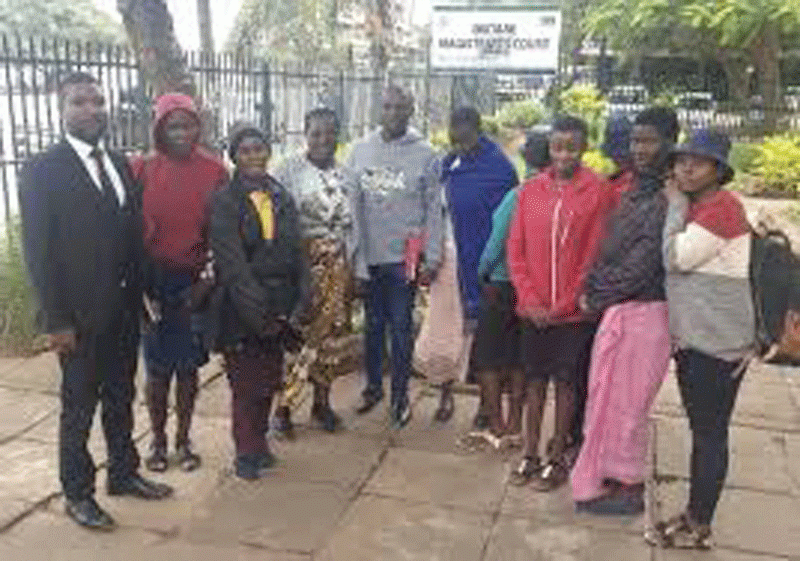
At the death of the ninth Parliament of Zimbabwe in August of 2023, President Emmerson Mnangagwa had remarkably lapsed with it a controversial Private Voluntary Organisations (PVO) Amendment Bill that was significantly going to change the regulatory framework for non-governmental actors operating within the civic space.
The seismic changes that had been passed by both houses of Parliament had drawn widespread condemnation by supporters of democracy and human rights in the global family of nations for being draconian and posed unnecessary restrictions on citizens operating within the civic space.
Mnangagwa had as part of the policy dialogues on this Bill commendable given a rare audience to civic society leaders to hear their concerns on the Bill, some of which resonated with him.
That he did not assent to having the law operational signified some level of impact on the part of those that had invested so much in advocacy for the government to reconsider its position on this restrictive regulatory framework.
Unlike the amendments to the Criminal law Codification and Reform Act, which were made law, there was optimism that the highest office on the land had for a change been influenced by popular sentiments.
The hope and optimism was, however, short-lived as on the occasion of the opening of the tenth parliament, Mnangagwa resurrected the Bill by introducing it among the laws for consideration by the legislature - albeit under the guise of outstanding laws from the last parliament.
It would not be entirely truthful to suggest that the reintroduction of the PVO Bill was a surprise.
Read together with the obtaining political polarization, unresolved post elections disputes and general democratic regression, laws such as the PVO Bill were always going to find expression in the Zimbabwean context.
- War vets demand Parly seats
- Govt to review suspended contracts as Zimdollar shortage bites
- Laptops deal rile TIZ
- Letter to my people: Real dictators raising their hands
Keep Reading
What, however, came as a shock was how the reconfigured Bill introduces an even worse regulatory framework that will collapse the configuration of civic society as we know it today.
It's as if we are moving from the fire into the frying pan.
The economic impact of such drastic changes to the regulatory framework of civil society organisations (CSOs) have been ably articulated in other literature reviews of this Bill and cannot be overstated.
Moreso with the runaway hyperinflation, anticipated drought and tighter economic situation that Zimbabwe finds itself in.
The reincarnated PVO Bill expands the scope and reach of non-governmental organisations it seeks to regulate, which in essence if carried deems illegal the work of those registered as trusts and those that are constituted as common law and are permissible under Zimbabwean laws.
Where the lapsed PVO Bill had limited scope, the reintroduced all but imposes a compulsory registration for NGOs as PVOs.
This infringes on citizens' right to expression and assembly.
The restrictions thereof are not legitimate and undemocratic.
The not so new Bill introduces vaguely defined terms of beneficial ownership, which in a way seek to make a distinction between the existing structures of NGOs with "owners".
By introducing vague provisions, there's an opportunity for the law to be abused.
In any event the law vests excessive powers in the Executive arm of government, collapses the PVO Board in favor of a more powerful registrar.
This goes against the principle of separation of powers, accountability and good governance.
The proposals that CSOs had made for a more inclusive PVO Board that would also strengthen self-regulation of CSOs have been rejected to entrench state control in the regulation of PVOs.
The registrar even has powers to determine the number of PVOs that can carry out certain mandates prescribing how citizens can organise themselves.
The coming together of citizens for a cause must not be subject to restrictions on account of the number of organisations or groupings pursuing the same.
If, for example, 10 000 organisations were to express willingness to register to support persons with disabilities, they must not be restricted merely on the basis that there are too many with the same mandate.
Likewise, it is unjustified for the law to prescribe the Constitutions and the number of persons occupying offices in PVOs.
That should be the function of the PVOs based on their composition and structures.
As currently configured some CSOs are membership-based, some a conflation of trustees and members, while others are functions of trustees, all of which are acceptable forms as long as there are checks and balances to ensure good governance and accountability.
There is of course the thorny issue of funding of political parties or politicisation of aid, provisions retained in the Bill albeit with some changes that are more draconian that the initial Bill.
To be clear, CSOs in their submissions and interaction with the president did not and do not support the politicisation of aid. It is never the role of CSOs to be agents of political parties and the distinction of their roles is that of day and night.
What is problematic are the provisions where non defined office bearers within PVOs can become liable for prosecution for misnomers of their organisations.
Nevermind that organisations are legal persons. These new provisions are retrogressive and can be used to target individuals and entrench a culture of fear.
There are other gaps within this law that CSOs have consolidated in their submissions to parliament.
Media reports that the Bill will be fast tracked are alarming and the hope is that the legislature will take into account submissions and concerns before passing this law.
Mnangagwa had through his intervention provided an opportunity for the government to rethink the PVO Amendment Bill. Sadly, not even his own concerns were addressed and we have a nightmare of a Bill before us.
- Nigel Nyamutumbu is a media development practitioner, currently serving as the coordinator of a network of nine journalistic professional associations and media support organizations the Media Alliance of Zimbabwe (MAZ). He sits on a CSO coordinating committee with other coalitions. He can be contacted on +263 772 501 557 or on [email protected]











